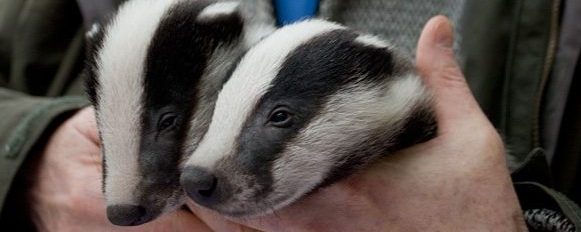
Today, the Government has released its plans for a new and simplified licencing system to facilitate badger vaccination. While on the face of it these plans appear to be helpful for those who wish to see an end to the culling of badgers, wildlife campaigners are concerned that they will be used as a smokescreen, to perpetuate further ‘reactive’ culling, and to prevent those who wish to protect badgers from speaking out against the culls.
Indications are that the government aims to allow vaccination in 2 of around 60 areas where badgers will be killed in 2022, with any further areas covering but a small proportion of the designated High Risk Area for bovine TB in cattle in the west of England. There are concerns that there may be restrictions, such as vaccination being promoted only once badger numbers have been decimated, and ‘gagging orders’ placed upon those who sign up to government funding – including that badger protectors would no longer be able to speak out against the badger cull.
The Government’s announcement claims that its badger vaccination plans form part of its long-term strategy to eradicate bovine TB in England by 2038. However, the strategy relies on the assumption that badger culling is working to reduce bovine TB, when current peer-reviewed scientific evidence suggests otherwise.
Government also claims that badger culling is being phased out. The reality is that it continues to be expanded, with 29 supplementary culls authorised yesterday, 25th May. A further ten new intensive badger culling zones are expected to be announced later in the year. The expected kill figure over the next 4 years is up to another 100,000 badgers. The Government wishes to retain the option to continue killing badgers in perpetuity under its proposals for ‘epidemiological culling’ which has, as anticipated also so far failed to reduce bTB herd breakdowns.
There are several reasons why vaccinating badgers might be desirable – principally to prevent bovine TB spilling over from cattle into healthy badger populations and to protect individual badgers from disease. However, there is little evidence to suggest that vaccinating badgers will prevent or reduce bovine TB among cattle – just as with culling, the move to promote the vaccination of badgers is based on the false assumption that badgers are a significant source of TB for cattle, and that badger intervention is necessary to control cattle TB, when the evidence suggests tighter cattle measures are the answer.
There are also good reasons why vaccination of badger populations previously subjected to culling is unlikely to be successful. Badger culling will reduce a population, but there is some evidence that it may increase the prevalence of TB among surviving badgers. Also, surviving badgers may be trap shy making them much more difficult to trap and vaccinate.
Ecologist Tom Langton, one of the authors of a new peer-reviewed study, With vets Mark Jones and Iain McGill has been closely monitoring & challenging government bTB strategy failures, said:
“It is depressing to see the smokescreen approach to Defra’s badger cull policy continuing. There is no evidence that vaccinating badgers, particularly after culling has massacred the population, can hold any benefit to bTB disease eradication in cattle and this was confirmed by the Godfray Review in 2018. Government is trying to normalise badger culling long-term, by initially claiming to the public that it is being phased out, when the plan is to perpetuate the so-called ‘epi-culling’ – the failed reactive culling of old.
“Failed government tactics could see the killing of thousands of badgers per year to 2038 and beyond. It is a disgusting, unethical slaughter of wildlife. It circumnavigates the legal protection of badgers under The Protection of Badgers Act 1992 and does nothing for farmers or cattle. Badger vaccinators should not be induced to mislead farmers into thinking that badger vaccination is known or expected to help control bovine TB in cattle. This is particularly unwelcome as our recently published, extensively peer-reviewed paper using government data* shows how badger culling intervention has failed to influence bovine TB herd breakdowns during the last decade, with the Chief Vet and Scientific Advisor putting out botched data and flawed argument to try to cover their trail.”
Veterinary surgeon Dr Mark Jones, another author of the recent science paper, said:
“From the lockdowns we have all suffered since 2020, we are all only too aware of the movement restrictions, accurate testing and vaccination that were necessary to control Covid 19. These kinds of measures need to be rigorously applied to cattle if bovine TB is to be successfully brought under control. Our recent peer-reviewed research clearly demonstrates that culling badgers is not reducing bovine TB among cattle herds, and while there may be good reasons to vaccinate badgers, it’s highly unlikely that badger vaccination will help control TB in cattle, and the promotion of badger vaccination continues to frame badgers as the culprit. This badger blame game needs to end.”
You can donate to our legal fighting fund here:
Donate
Thank You.
Discover more from The Badger Crowd - standing up for badgers
Subscribe to get the latest posts sent to your email.

